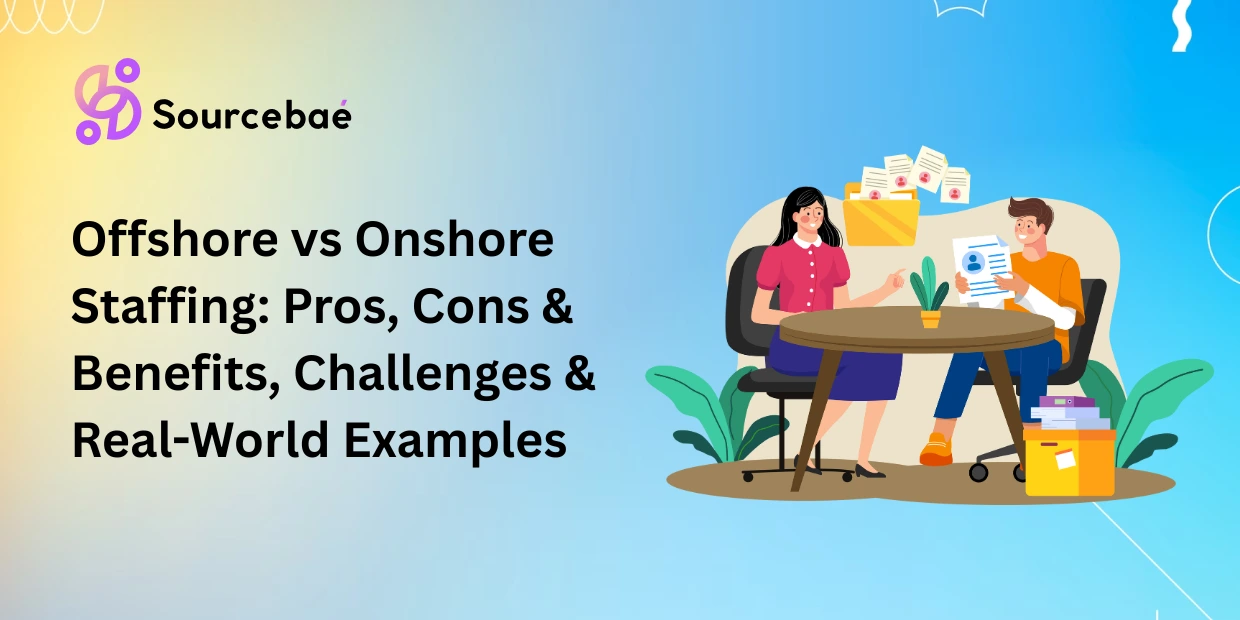Are remote interviews better than in-person interviews? Today’s workplace dynamics and rapid technological advances have made interviewing remotely increasingly popular. This article explores both interview formats—remote vs. in-person interviews—in depth. We will explore detailed advantages and disadvantages, comparisons in varied contexts, practical insights, and frequently asked questions. By the end, employers and candidates will know exactly when and why remote interviews might genuinely outshine traditional meetings.
The Rise of Remote Interviews
The surge in remote interviews first became prominent during the COVID-19 global pandemic. Organizations needed to adopt sustainable alternatives to maintain hiring practices and ensure employee safety. With advancements in video-conferencing technologies like Zoom, Microsoft Teams, and Google Meet, remote interviews became accessible, convenient, and reliable.
Statistics reveal that over 80% of companies transitioned towards virtual interviews during the pandemic, with many continuing this practice afterward. Not surprisingly, industries such as tech, fintech, digital marketing, consulting, and education have embraced remote interviewing with enthusiasm.
Advantages of Remote Interviews
Convenience and Flexibility
Remote interviews significantly add convenience for everyone involved. Scheduling interviews across different cities or even continents becomes straightforward. Candidates appreciate avoiding travel-related stress and costs; employers benefit from faster, smoother processes. The hiring timeline improves, thanks to multiple interview setup options and quicker feedback.
Cost-Effective for Companies and Candidates
Organizations generally prefer methods that save costs, and remote interviews help achieve that. Virtual setups eliminate the need for expensive flights, hotels, conference rooms, transportation, and refreshments. The cost savings can instead be invested in recruitment tools, software, or employee training. Candidates likewise experience financial relief, skipping travel and accommodation expenses.
Access to Wider Talent Pool
One undeniable advantage of remote interviews lies in the ability to transcend geographical limitations. Companies are no longer restricted when sourcing talent; they can fill roles quickly with the best global candidates. Ultimately, this fresh exposure improves workplace diversity and promotes inclusion by enabling candidates from remote areas or diverse backgrounds to apply and engage easily.
Efficient Screening of Candidates
Time is valuable, especially during initial candidate screening. Virtual interviews streamline this process immensely. Employers can conduct first-round screening interviews quickly and proceed with shortlisted candidates. Additionally, remote interviews (with proper permissions) can be recorded, allowing the interview panel to effectively evaluate a candidate’s talent afterward.
Reduced Interview Anxiety for Some Candidates
Interview anxiety is natural, but remote interviews provide candidates comfort and familiarity not achievable through in-person meetings. Conducting the interview at home reduces anxiety and enables job-seekers to concentrate on showcasing their abilities authentically.
Check out: AI in Recruitment
Drawbacks of Remote Interviews
Technical Issues and Connectivity Challenges
Virtual interviews rely heavily on stable internet connections and operational hardware. Issues like connectivity disruption, poor audio/video quality, or lack of technical savvy can negatively impact the interview and lead to frustration for both parties.
Limitations in Assessing Non-Verbal Cues
Interviewers often rely heavily on non-verbal cues—such as body language—to make decisions. In remote interviews, interpreting subtle behavioral cues becomes challenging. Poor interpretation can result in limited understanding of candidates and may affect hiring decisions adversely.
See how our AI interviewer works in real time!
Automate your hiring process with human-like AI driven interviews for faster, effortless and unbiased results.
Challenges in Company Culture Evaluation
Evaluating cultural compatibility poses another challenge in remote interviews. Typically, a candidate learns about company culture through in-person interactions, workplace tours, and informal conversations. Interviews conducted remotely limit opportunities for insight into office dynamics, atmosphere, and team interactions, making cultural evaluation fundamentally more challenging.
Risk of Reduced Professionalism
Virtual environments occasionally diminish perceived professionalism. Interruptions by family members or noisy environments can distract participants, negatively influencing the overall impression. Ensuring professional etiquette remains maintained virtually can be considerably more challenging than in-person interviews.
Advantages of In-Person Interviews
Despite the strengths of remote meetings, in-person interviews still have specific undeniable advantages:
- Accurately reading candidates’ non-verbal communication.
- Clear and visible evaluation of interpersonal chemistry.
- Enhanced employer branding and candidate experience through personal interactions.
- Reduced risk of disruptions from technical issues.
Major Disadvantages of In-Person Interviews
However, the traditional format’s disadvantages include:
- Higher cost expectations, especially for companies and applicants located far apart.
- Logistical issues including arranging travel, accommodation, and scheduling.
- Geographical constraints limiting talent selection.
- Increased interview-day stress negatively impacting some candidates’ performances.
Check out: Why Skills-Based Hiring Works
Comparison: When is One Format Better than the Other?
Interview format choice should ideally depend on hiring needs and situational circumstances. Here are some common scenarios:
- Early Screening vs. Final Selection: Remote interviews offer great value during initial screenings, whereas final interviews may greatly benefit from face-to-face interactions.
- Technical Skills vs. Cultural Fit Evaluation: Measuring technical expertise suits remote interviews well; however, testing a candidate’s ability to blend into existing team dynamics might favor in-person interactions.
- Large Organizations and Startups: Larger organizations often rely heavily on remote interviews to expedite hiring processes at scale. Startups prioritizing cultural fit could prefer in-person interviews to determine a candidate’s suitability accurately.
The ideal strategy for many organizations includes a balanced, hybrid approach leveraging the strengths of remote and in-person methods accordingly.
Best Practices for Conducting Successful Remote Interviews
Establishing clear remote interview guidelines significantly enhances the candidate and interviewer experience. Here are practical recommendations:
- Preparation Checklist: Set up technology beforehand, test functionalities, and provide clear interview links ahead of time. Prepare a backup plan for contingencies.
- Interview Procedure Guidelines: Communicate clearly and utilize structured interview formats. Rely on competency-based questions for maximum insight.
- Candidate Preparation Tips: Candidates should find a quiet, distraction-free environment, verify technological functions, and practice communication methods.
Future of Interviews: Can Remote Truly Replace In-Person?
The increasing adoption of remote interviewing suggests this type of interviewing will likely play a central long-term role. Moreover, advancements—such as AI-powered interview platforms, immersive virtual environments, and improved video tools—will likely enhance remote interviewing even further.
However, completely replacing in-person interviews remains debatable. Likely, hybrid interview methods combining remote and face-to-face modules will dominate recruitment processes in the future.
Conclusion
This detailed overview explored pros and cons for remote versus in-person interviews. While each method contains strengths and weaknesses, organizations today largely find remote interviews increasingly favorable overall due to convenience, cost-efficiency, flexibility, and accessibility.
Companies wishing to leverage maximum hiring effectiveness should opt for balanced and contextualized hybrid interview structures.
Embracing remote interviewing strategically will ensure robust talent acquisition practices suited for today’s digital age.
FAQs about Remote vs. In-Person Interviews
Are remote interviews less reliable in determining candidate skills than in-person interviews?
Not necessarily. Remote interviews can effectively evaluate candidate skills provided interviewers apply structured, competency-focused interview methods consistently.
How do I avoid technical issues during remote interviews?
- Perform preliminary tests for software and connections.
- Keep backup devices and alternative internet connectivity accessible.
- Share step-by-step troubleshooting guides with participants in advance.
Can remote interviews negatively impact diversity and inclusion?
On the contrary, remote interviews typically facilitate better diversity by attracting global talent. Proper structure ensures inclusivity remains unaffected by technology constraints.
How can candidates and interviewers effectively build rapport virtually?
- Begin with casual small talk.
- Maintain camera eye contact to replicate connection.
- Practice active, empathetic listening.
- Keep tone professional yet friendly to foster comfort and rapport.
Are remote interviews cheaper overall for a business?
Yes, remote interviews significantly reduce business costs, eliminating expenses such as visits, travel, accommodation bookings, refreshment arrangements, and meeting room fees.
Should I transition my entire hiring process to remote interviews?
Adopting a fully remote system depends on your organization’s situation. Generally, consider positional requirements, hiring stages, geographical location, company culture, and candidate accessibility. Employing a hybrid interviewing approach often yields optimal outcomes.
Leveraging these insights, organizations can successfully determine whether remote or in-person interviews align best with their unique hiring needs.





